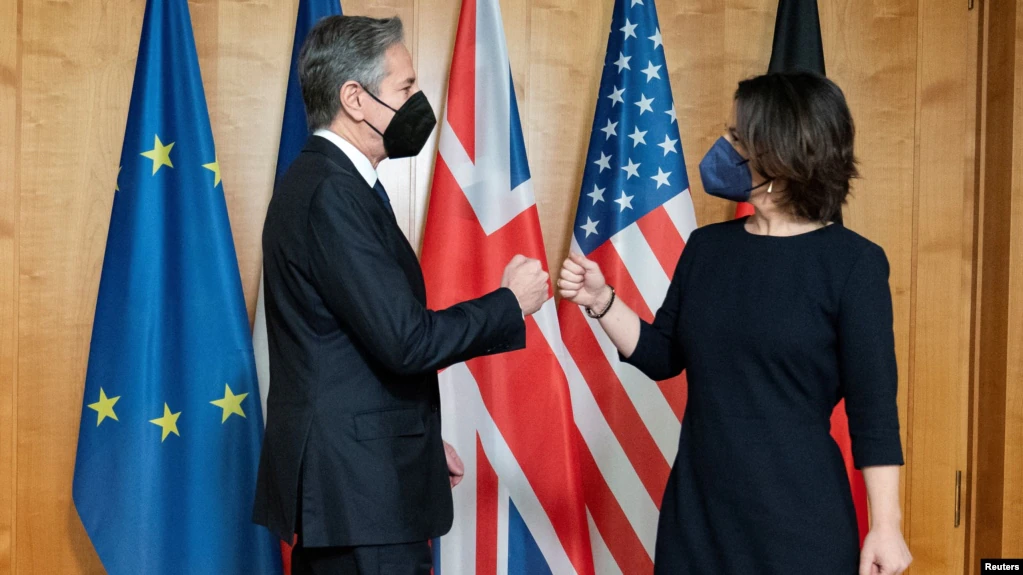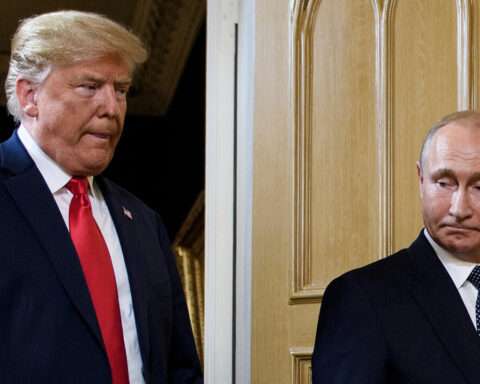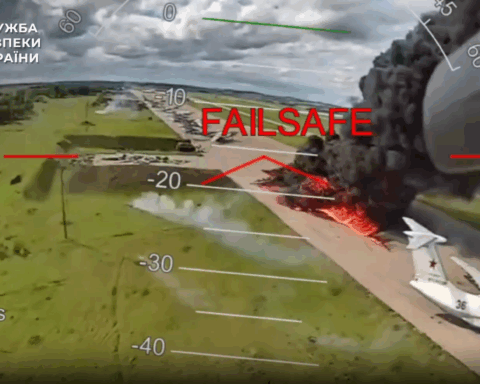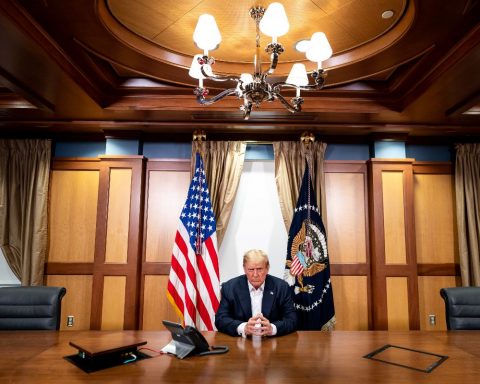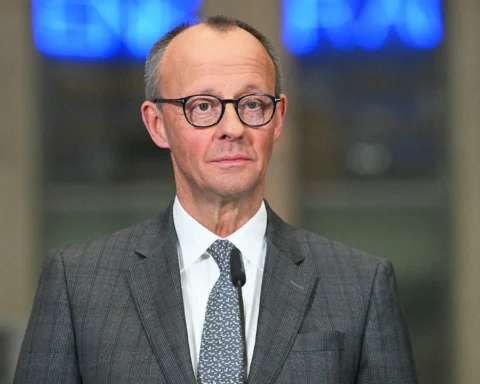U.S. Secretary of State Antony Blinken has started another round of talks with key European allies in Berlin to cement a common strategy in the face of a buildup of Russian troops on its border with Ukraine that many fear is a prelude to an attack at “very short notice.”
Blinken will meet on January 20 with his counterparts from Germany, France, and the United Kingdom before heading to Geneva for talks the next day with Russian Foreign Minister Sergei Lavrov.
Alarms have been sounding throughout Western capitals about the danger of a new major conflict after Russia massed an estimated 127,000 troops along Ukraine’s borders and deployed a sizable force in Belarus for what Moscow and Minsk say will be snap military exercises.
Blinken visited Kyiv on January 19 to reassure Ukraine that it had the support of Washington, saying that if Russia carries through with any aggressive moves against Ukraine, the United States is prepared to provide additional materials to Kyiv to help it defend itself.
U.S. President Joe Biden told a news conference late on January 19 that his Russian counterpart, Vladimir Putin, likely hadn’t decided and that Russia would face severe economic consequences should a military offensive occur.
“I’m not so sure he is certain what he is going to do. My guess is he will move in. He has to do something,” Biden said at a wide-ranging press conference to mark his first year in office.
But Biden said an attack on Ukraine would be a “disaster for Russia,” exerting a tremendous human, economic, and political toll on Moscow.
Mykhaylo Podolyak, an adviser to President Volodymyr Zelenskiy’s office, said Kyiv welcomed that Biden had signaled a coordinated Western response in case Russia made a move on Ukraine.
“What was important for Ukrainian society to hear? The fact that Western states have a common understanding that any negative scenario in relation to Ukraine or in general in Europe will receive a coordinated, sufficient and sensitive response,” Podolyak wrote in a message to Reuters.
“At the same time, it is important to understand that diplomatic efforts at various levels continue, and de-escalation steps are now the main goal of these efforts.”
However, at a meeting with U.S. senators in Kyiv this week, Zelenskiy called for immediate tough sanctions against Russia, rather than waiting for a possible large-scale Russian invasion of Ukraine, Washington-based news outlet Axios reported, citing sources familiar with the matter.
The Kremlin, which denies planning an attack, said on January 20 that the U.S. warning of possible disastrous consequences for Russia could destabilize the situation further.
Blinken has voiced hope that despite indications that Russia continues massing troops near Ukraine, his upcoming talks with Lavrov will show “that diplomacy remains an open possibility.”
“Unfortunately, we continue to see Russia having amassed very significant forces on Ukraine’s borders. That process seems to continue. On the other hand, the fact that we are meeting in Geneva, the fact that we will be discussing the conversations and exchanges that we’ve had over the last 10 days, also suggests to me that diplomacy remains an open possibility,” Blinken told VOA on January 19.
The chief U.S. diplomat added that the path to a peaceful solution ultimately rests with Putin, since it was the Russian leader who prompted the West to beef up its defenses in the aftermath of Russia’s annexation of Crimea almost eight years ago.
Blinken’s meetings in Berlin are expected to focus on “joint efforts to deter further Russian aggression against Ukraine” including the allies’ “readiness to impose massive consequences and severe economic costs on Russia,” according to State Department spokesman Ned Price.
European Commission President Ursula von der Leyen reiterated on January 20 that the EU will respond with “massive” economic and financial sanctions “if the situation deteriorates, if there are any further attacks on the territorial integrity of Ukraine.”
The transatlantic community “stands firm in this,” von der Leyen said in an online address to the World Economic Forum in Davos, Switzerland.
“We do not accept Russia’s attempt to divide Europe into spheres of influence,” she said. “If attacks happen, we are prepared.”
Russia’s deployment of forces along Ukraine’s border, and in the occupied region of Crimea, is one of the largest unscheduled massing of forces since 2014. Russia is also backing separatist fighters in an ongoing war in eastern Ukraine that has claimed more than 13,200 lives since April 2014.
Moscow has denied any plans to attack Ukraine and accused NATO of planning to admit the country as a member of the alliance, as well as deploy offensive weaponry there.
Russian Foreign Ministry spokeswoman Maria Zakharova on January 20 alleged that Ukrainian and Western claims of an imminent Russian attack on Ukraine were “cover for staging large-scale provocations of their own, including those of a military character.”
Zakharova cited the delivery of weapons to Ukraine by British military transport planes in recent days.
The United States has reportedly approved requests by Baltic countries to ship U.S.-made weapons to Ukraine.
A State Department official in Berlin said the United States was “expediting authorized transfers of U.S.-origin equipment from other allies,” according to AFP.
“European allies have what they need to move forward on additional security assistance [to] Ukraine in the coming days and weeks,” the official said.
A source familiar with the authorizations was quoted as saying the approval was for urgent requests by NATO members Estonia, Latvia, and Lithuania to assist Ukraine. The exact amounts and types of weapons were not specified.
Last week, Russian diplomats met with top officials from the United States, NATO, and European countries to discuss the sweeping demands Moscow has made, which amount to a major restructuring of Europe’s security architecture.
The talks yielded no breakthroughs, and that, plus belligerent rhetoric from Moscow, has alarmed Western officials.
Russia has maintained a tough posture, with officials saying there can’t be any meaningful talks on possible further talks on arms control and confidence-building measures if the West doesn’t heed Moscow’s demands.


